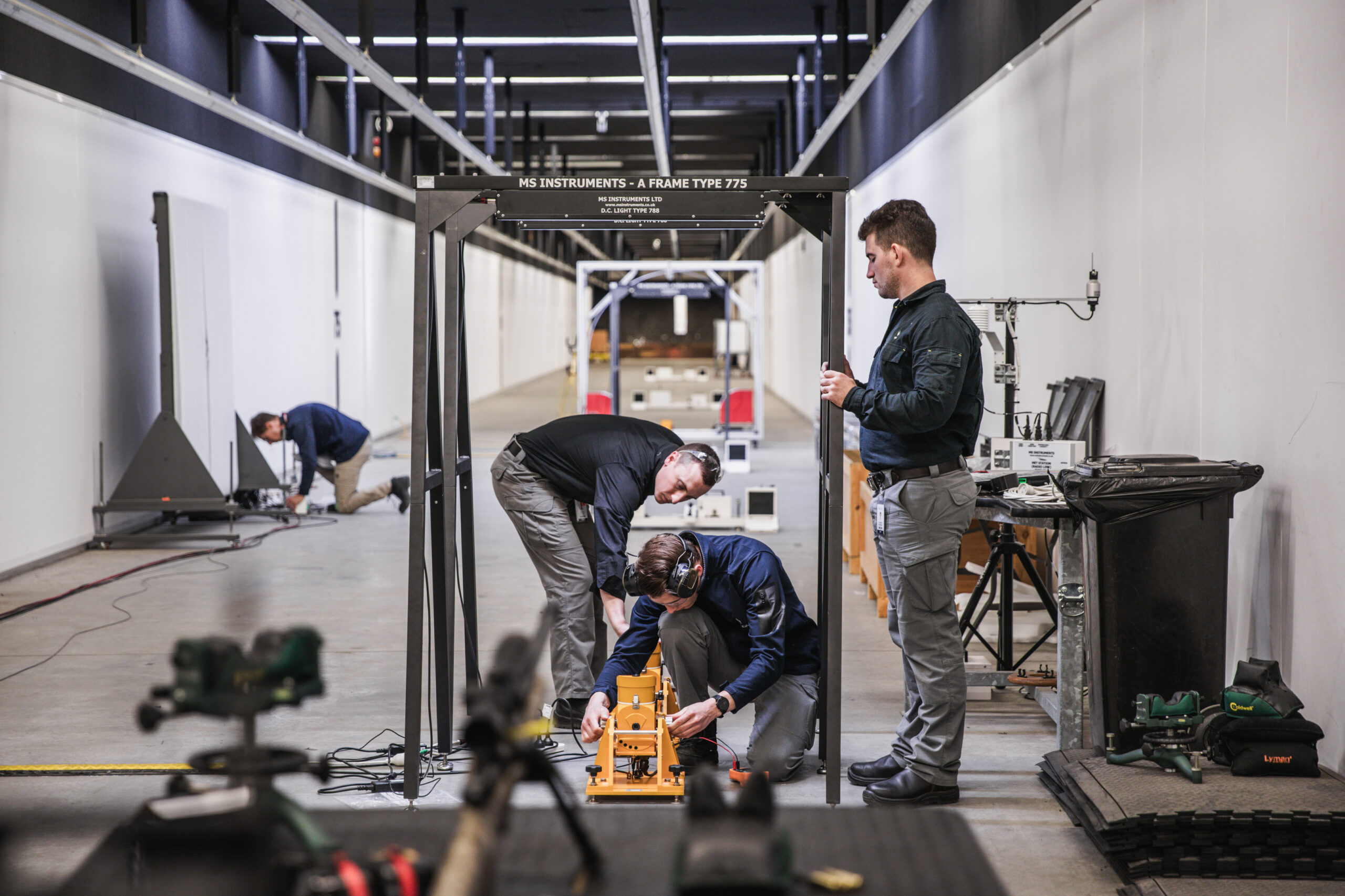NIJ 0108.01 Ballistic Resistance of Protective Materials Testing
The National Institute of Justice (NIJ) Standard 0108.01 is a critical standard for evaluating the ballistic resistance of protective materials used in body armor and other personal protection equipment. This stringent testing ensures that the materials meet rigorous safety standards, providing reliable performance under real-world conditions.
Developed to protect law enforcement officers and other personnel against various types of threats, this test assesses how well a material can withstand impact from high-velocity projectiles. The standard is particularly important for ensuring that protective gear meets the necessary criteria for public safety. The testing process involves subjecting materials to specific ballistic tests designed to simulate potential real-world scenarios.
The NIJ 0108.01 test procedure involves several key components, including:
- Selection of appropriate projectiles and velocities
- Six different impact points on the armor plate
- Recording of deformation and penetration data
- Evaluation of the material's ability to stop or deflect the projectile
The standard is designed to ensure that materials are capable of stopping or significantly reducing the velocity of a projectile, thereby protecting the wearer. Compliance with this standard is crucial for manufacturers, as it ensures that their products meet regulatory requirements and provide reliable performance in critical situations.
For quality managers, compliance officers, R&D engineers, and procurement specialists, understanding the nuances of NIJ 0108.01 testing is essential. This knowledge helps them make informed decisions about material selection, design improvements, and production processes. By adhering to this standard, manufacturers can ensure that their products meet high safety standards, thereby protecting users in critical situations.
The testing process typically involves a series of tests conducted on different types of materials to determine their ballistic resistance. This includes both metallic and non-metallic materials commonly used in body armor. The results are meticulously recorded and analyzed to ensure compliance with the standard's requirements.
Compliance with NIJ 0108.01 is critical for ensuring that protective materials meet regulatory standards, providing reliable performance under real-world conditions. This standard plays a vital role in protecting law enforcement officers and other personnel against various types of threats. By adhering to this standard, manufacturers can ensure that their products are safe and effective.
Why It Matters
The NIJ 0108.01 test is essential for ensuring the safety and effectiveness of protective materials used in body armor. This test evaluates how well a material can withstand impact from high-velocity projectiles, providing critical information that helps manufacturers improve their products.
For quality managers, compliance officers, R&D engineers, and procurement specialists, understanding the importance of this testing is crucial. Compliance with NIJ 0108.01 ensures that products meet regulatory standards and provide reliable performance in real-world scenarios. This knowledge enables informed decision-making about material selection, design improvements, and production processes.
The test results are essential for manufacturers to ensure their products meet high safety standards. By adhering to this standard, manufacturers can protect users in critical situations, thereby enhancing public safety. The testing process involves subjecting materials to specific ballistic tests designed to simulate potential real-world scenarios, providing valuable data that helps improve product performance.
The NIJ 0108.01 test is a key component of ensuring the safety and effectiveness of protective materials used in body armor. Compliance with this standard ensures that products meet regulatory requirements and provide reliable performance under real-world conditions. This knowledge is essential for quality managers, compliance officers, R&D engineers, and procurement specialists, enabling them to make informed decisions about material selection, design improvements, and production processes.
International Acceptance and Recognition
- The NIJ 0108.01 standard is widely recognized and accepted globally for its rigorous testing procedures.
- Countries around the world use this standard as a benchmark for evaluating ballistic resistance of protective materials.
- Adherence to this standard ensures that products meet international safety standards, enhancing public trust in protective equipment.
The NIJ 0108.01 test is essential for ensuring the safety and effectiveness of protective materials used in body armor. This test evaluates how well a material can withstand impact from high-velocity projectiles, providing critical information that helps manufacturers improve their products.
For quality managers, compliance officers, R&D engineers, and procurement specialists, understanding the importance of this testing is crucial. Compliance with NIJ 0108.01 ensures that products meet regulatory standards and provide reliable performance in real-world scenarios. This knowledge enables informed decision-making about material selection, design improvements, and production processes.
The test results are essential for manufacturers to ensure their products meet high safety standards. By adhering to this standard, manufacturers can protect users in critical situations, thereby enhancing public safety. The testing process involves subjecting materials to specific ballistic tests designed to simulate potential real-world scenarios, providing valuable data that helps improve product performance.
The NIJ 0108.01 test is a key component of ensuring the safety and effectiveness of protective materials used in body armor. Compliance with this standard ensures that products meet regulatory requirements and provide reliable performance under real-world conditions. This knowledge is essential for quality managers, compliance officers, R&D engineers, and procurement specialists, enabling them to make informed decisions about material selection, design improvements, and production processes.





